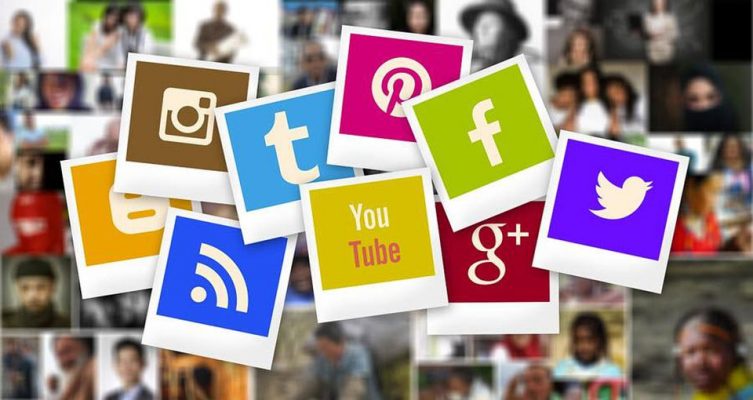Unarguably, Information Communication Technology (ICT) as a global phenomenon has come to shape human lives in very
fascinating and remarkable ways.
Evolving digital age has also continued to alter how people do things socially, economically and politically.
To this end, analysts say that increased technological advancement necessitated the adoption of digital technology by individuals,
government agencies and corporate bodies to remain relevant and offer more efficient services.
Some analysts have, however, identified the social media in particular as a platform that represents a perfect example of
the democratisation of information and technology, with the capacity to migrate communication to interactive dialogue and social activation.
This, no doubt, is evident with regards to its use for campaigns and enlightenment by political parties, groups and organisations such as
Facebook, Twitter, LinkedIn and YouTube.
Dr Jobi Adewole, an Information Communications Technology (ICT) expert, says that the economic benefits of the social media are
huge, but can only be explored if
initiators and members of such platforms understand its aims and objectives.
Adewole, who is Nigeria’s Representative of Noble Amber Mobile Company, Canada, advised that “rather than using the social media
to gossip, people should explore the platform to share values and create jobs.
“However, I observed that some social media platforms have become a market place of ideas and creativity. Also, products and
services are sold online, thus providing an opportunity for start-ups to take informed business ideas.’’
Mr Olusegun Shogbale, the Principal Data Processing Officer, Federal Ministry of Science and Technology, explained that many
Nigerians, like citizens of other nations, can develop amazing entrepreneurial skills to make a living through opportunities
provided by social media platforms.
Shogbale noted that through the platforms, people could equally become employers of labour, meet people of like minds and plan toward developing a plan or initiative.
He added that banking transactions such as online deposits and transfers had made financial transactions easier, unlike in the
past when people must be physically available to conduct such transactions.
He said that “with online banking applications, people could use their smartphones to transfer money and shop online from the comfort of their homes.
“The country’s E-Commerce space is growing tremendously, companies such as Yudala, Jumia, Konga and Jiji to mention just a few, are online malls recording huge patronage by online customers.
“Also, the trove of information exchanged through social media by individuals, groups and institutions has impacted on all
spheres notably; e-education, e-health, e-agriculture, crime prevention, and safety.’’
Mr Titi Omo-Etu, the Chairman, Governing Board of Digital Bridge Institute, emphasised the need for Nigerian youths to equip themselves with necessary ICT skills to remain relevant in the emerging digital age.
Omo-Etu blamed the rate of unemployment in the country to failure of Nigerians, especially youths, to possess the
prerequisite ICT skills needed to fit into the digital age.
According to him, available research has painted a snapshot of how jobs and skills will differ in the digital era.
He said that individuals with special knowledge would receive priority attention during the digital era as both hard
and soft skills would be vital for future vocations.
He added that “while science, technology, engineering and mathematics professions are projected to have the highest growth rates, computer literates are expected to have the highest job growth.’’
On the other hand, social media can also be a nuisance to society.
Mudslinging, hate speech, cyberbullying, rants and unbridled ventilation of anger and fake news are common features on such platforms.
It is, therefore, necessary to moderate the counter effects to promote positive, development-driven and responsible
social media usage platform.
The Minister of Communications, Adebayo Shittu, therefore, urged Nigerians to engage in responsible political debates devoid of hate speech in the interest of peace and development.
Shittu, who made the appeal recently in Abuja during a two-day National Social Media Retreat with the theme: “Social
Media for Good Governance’’, emphasised that social media platforms should not be used to promote divisive messages
and ideas.
However, he said, the Federal Government would not limit Nigerians’ access to social media as everyone should be entitled to his or her opinions.
According to him, protecting critical expressions on the Internet is the standard by which governments are measured to
be genuinely democratic.
The minister said “Nigerians should, therefore, feel free to discuss government policies and engage in responsible political debates, report corruption and exercise their rights to expression of opinion and dissent.’’
Shittu also expressed the Federal Government’s commitment to ensuring solid friendly and secure policies that would aid the use of technology-based platforms of interaction in social media.
He, however, warned that such liberty should not be used to undermine the peace and security of the country.
He stressed that “there is no doubt that the inventors of social media platforms have good intentions such as making
communication easier, faster, secure and untainted.
“This technological breakthrough has contributed immensely to rapid development in various climes.
“Our domestic use of social media platforms to promote divisive, tribal, parochial, fabricated and sentimental information
and messages, however, needs to be checked.’’
He further urged operators to guard against distractions from the goals of the social media.
He said “this dangerous trend, which is also being perpetrated by some bloggers and online journalists require
urgent attention to promoting development, peace and the wellbeing of our nation.
“Operators of social media platforms must guard against the distractions the social media generates and focus on their
respective key deliverables.
“This much freedom of expression and opinion can be a double-edged sword: a tool that triggers change; shaping political
discourse and extremism, fake news and hate speech.’’
He said that the ministry was collaborating with relevant stakeholders on how to use social media to do things differently.
“We will adopt social media in a way that we
do e-service and try to shape policies accordingly for good governance,’’ the minister added.



Leave a Reply